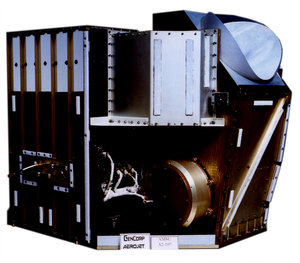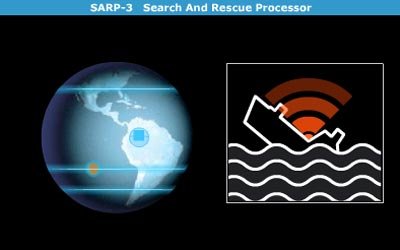About GOME-2
The Global Ozone Monitoring Experiment-2 (GOME-2) is one of the new-generation European instruments carried on MetOp and will continue the long-term monitoring of atmospheric ozone started by GOME on ERS-2 and SCIAMACHY on Envisat. The more advanced GOME-2 is set to make a significant contribution towards climate and atmospheric research, whilst providing near real-time data for use in air quality forecasting.
Different gases in the atmosphere absorb different wavelengths of light. The GOME-2 scanning spectrometer is designed to exploit this fact by capturing light reflected from the Earth's surface and atmosphere and splitting it into different wavelengths to reveal absorption lines, which correspond to certain gases present in the observed sample. GOME-2 will map concentrations of atmospheric ozone as well as nitrogen dioxide, sulphur dioxide, other trace gases and ultraviolet radiation. These profiles are representative of the lowermost 50 km of the Earth's atmosphere. These data are crucial for monitoring stratospheric ozone and atmospheric pollutants to keep a check on the health of the Earth's atmosphere.

The instrument is mounted to the flight direction side of the MetOp satellite and is nadir viewing. A mirror scans a swath towards the surface of the Earth and directs incoming light into a telescope. The light is reflected by a number of mirrors before being directed towards a quartz prism, which separates the light into four main beams. The four beams are split further by holographic gratings to resolve the light to 0.5 nm wavelengths or better.
Each scan back and forth across the satellite track takes just six seconds and with a scan-width of 1920 km, global coverage can be achieved within one day. The advanced GOME-2 observes four times smaller ground pixels (80 km x 40 km) than GOME on ERS-2 and has better polarisation and the calibration processes have been improved.
The Prime Contractor for GOME-2 is Galileo Avionica, Italy.















 Germany
Germany
 Austria
Austria
 Belgium
Belgium
 Denmark
Denmark
 Spain
Spain
 Estonia
Estonia
 Finland
Finland
 France
France
 Greece
Greece
 Hungary
Hungary
 Ireland
Ireland
 Italy
Italy
 Luxembourg
Luxembourg
 Norway
Norway
 The Netherlands
The Netherlands
 Poland
Poland
 Portugal
Portugal
 Czechia
Czechia
 Romania
Romania
 United Kingdom
United Kingdom
 Slovenia
Slovenia
 Sweden
Sweden
 Switzerland
Switzerland










































